Mostly Right, Partly Wrong: Parenting Children As They Grow
By Fred and Susan Sanders
Fred is a systematic theologian and a Professor in the Torrey Honors Institute at Biola University.
Susan is the Children's Ministry Director at Grace Evangelical Free Church in La Mirada, CA.
As Christians, we know the meaning of "I once was lost, but now am found; was blind, but now I see." Because of conversion, we understand what a total turnaround looks like. But as parents, we're in a different position: We almost never have to say, "I was totally wrong in every way." We're usually somewhere in the awkward middle between right and wrong. We're right about some things and wrong about others.
We can be right about the principles, but wrong in our application of them. Or right about the grand strategy of parenting, but wrong about sticking to it consistently in the everyday opportunities. Or right about who our kids were last year, but failing to update our mental files to capture who they've become this year.
Whenever we have a moment to step back and get some perspective, it’s an opportunity to renegotiate our positions and policies as parents. Here are three areas to consider making changes in.
1. We can be right about the principles, but wrong in our application of them.
If we're following Biblical principles as parents, we've got the big picture basically right. That's worth stopping and thanking God for. But even though God is infallible and his word is inerrant, we have to leave some margin of error for our own understanding and application of it.
Everybody has some false beliefs rattling around in their head. Let's say you've got a thousand beliefs, and ten of them are mistaken. If you knew which of your beliefs were false, you could just go in and remove them. The problem is that none of us know which ones those are. If you think you have absolutely no false beliefs lurking in your mind, guess what: That's one of them! On the other hand, if you let your fallibility undermine your confidence in the truth, you've let a few stray notes ruin the whole song.
QUOTE
“Endless obedience to parents is not the kind of maturity we are seeking for our kids.”
Our kids need parents who are mostly right, but can admit it when they're wrong. If we're training our kids to become adults who obey God in his word, the best possible training is the kind that points them to the perfection of that word. If they were going to spend their entire lives obeying us, the stakes would be higher for us, and perfection would be necessary. But endless obedience to parents is not the kind of maturity we are seeking for our kids. The goal of our parenting, to paraphrase the apostle Paul, is love from a pure heart, and a good conscience, and a sincere faith (1 Tim 1:5).
2. We can be right about the grand strategy of parenting, but wrong when it comes to sticking to it consistently in the everyday opportunities.
As Christian parents, we've got the big picture right. But carrying it out day after day is where the real battle is.
We have taught our two children at home, and it's easy to plan a whole year of major advances through vast stretches of curriculum. But when the whole grand plan vanishes in the mist, everything comes down to figuring out how to finish one page of writing on one particular afternoon. This is exactly the area where we should take advantage of the opportunity to take stock and re-commit to greater consistency and follow-through.
QUOTE
“Parenting is one chance after another, day after day, to keep coming back until we get it right.”
There's a fancy word, quotidian, which means everydayness. And the quotidian zone is where all the real work of parenting gets accomplished. When I (Fred) worked in a print shop back in Kentucky during seminary, I used to listen to a local AM radio talk show every morning. The host, who had been in the morning radio business for 25 years already, ended every show with the line, "That's our show for today, but we'll be back tomorrow. And we're going to keep coming back until we get it right." Parenting is one chance after another, day after day, to keep coming back until we get it right. The days we have with our children are not infinite; we'll run out of them soon enough, on a quite predictable schedule. But until then, they keep coming one after another. We need to stay focused and committed to bringing our ideals down into the valley of the shadow of the quotidian.
3. We can be right about who our kids were last year, but fail to update our mental files to capture who they've become this year.
When our son was three years old, he was pretty grumpy. As we came to terms with his personality, we learned to pick our battles, trying to adjust his attitude on regular, opportune occasions, but otherwise trying to set him up for success even in his grumpiness. The kid especially hated the unexpected, so we developed a whole lifestyle of preparing him for new experiences well in advance. We had pretty much settled into the groove of handling him this way, with elaborate rituals of managing Grumpy Boy's schedule, even as we worked and prayed for change in his character.
Then one day, we were looking through a photo album, and I (Susan) pointed to a picture and said, "Look at his beautiful smile. I wish we saw more of it." We looked at the next page: More smiles. Smiles all over the place, in fact! It turns out that he had morphed into a fairly sunny disposition somewhere around his fourth birthday, and his parents were several weeks behind in noticing it. The very change we had been working and praying for had happened while we were too busy planning how to manage a grumpy kid (and of course documenting his childhood) to notice it.
QUOTE
“We've seen both our kids grow in and out of all sorts of stages, and have learned how fast we have to pivot in order to keep up with them.”
Since then, we've seen both our kids grow in and out of all sorts of stages, and have learned how fast we have to pivot in order to keep up with them. It was true when they were little, and it continues to be true today. Our kids are sixteen and eighteen now, so they have come on board with us as more active partners in making the big decisions and renegotiating their own inner lives with increasing responsibility. We were right about who our child had been in the recent past, but would have been in big trouble if we hadn't noticed that he had changed.
In our work as parents, we have been mostly right on principles, grand strategy, and knowing who our kids are, but partly wrong in areas like application of principles, daily implementation of grand strategy, and changing along with the changes in our children. There is plenty to be thankful for, plenty to stay committed to, and plenty to repent of.

